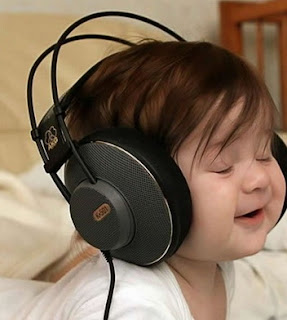Jean Piaget And Cognitive Development
He proposed that children go through many distinct stages of cognitive growth. First comes the sensorimotor stage ( birth to 2 years ), throughout that the kid learns primarily through sensation and movement. For the pre-operational stage ( ages 2 to firmly seven ), children begin to firmly master symbols inclusive of language and begin that should be able to firmly type hypotheses based mostly on past experiences. For the concrete operational stage ( ages seven to firmly eleven ), children be able to generalize from one situation to firmly similar ones, though such reasoning is typically restricted to firmly their own personal concrete expertise.
Finally, for the formal operational stage ( eleven years older ), children will do business with abstractions, type hypothesis and engage freely in mental speculation. Though the speed that children progress in the stages varies significantly, the sequence of stages is consistent for many children. Thus, that should be appropriate and effective, learning activities ought to tailored to firmly the cognitive level on your kid. This theory is important to understand if you applied homeschooling education.
Rudolf Steiner And Therefore The Waldorf Schools
Steiner divided children’s development into 3 stages : to firmly age seven, children learn primarily by imitation ; from seven to firmly fourteen, feelings and emotions predominate ; and when age fourteen, the event of freelance reasoning skills becomes vital. Waldorf education tends to firmly emphasize arts and crafts, music, and movement, particularly at younger ages, and textbooks are eschewed in favor of books the students create for themselves. Waldorf theories too maintain that the emphasis ought to on developing the individual’s self-awareness and judgment, sheltered from political and economic aspects of society till well into adolescence.
Montessori And Therefore The Ready Environment
Italian physician Maria Montessori’s work emphasized the thought on your ready environment : give the right surroundings and tools, to make sure that children will develop their full potential. Montessori materials are rigorously selected, designed to firmly help children be able to gathering with their cultures and to firmly become freelance and competent. Emphasis is requried to be made by beauty and quality, which that confuses or clutters is avoided : manipulative are created of wood instead of plastic tools are straightforward and useful, and tv and computers are discouraged.
Charlotte Mason : Guiding Natural Curiosity
Charlotte Mason was a nineteenth-century educator advocated informal learning throughout the child’s early year distinction along with the prussian system of regimented learning then in vogue. She recommended nature study to firmly develop each observational ability and an appreciation for our beauty of creation and extended that approach to firmly teaching history geography through travel and study on your environment instead of as collections of information to firmly master.
She felt children learn best when instruction takes into account their individual abilities and temperaments, however she emphasized the importance of developing smart habits to firmly govern one’s temperament and laying a solid foundation of excellent ethical values.
Holt And Unschooling
Educator John Holt wrote extensively concerning college reform within the 1960s. Though he originally proposed the word “unschooling” merely currently being a additional satisfactory various to firmly “homeschooling education”. Unschooling currently usually refers to firmly a kind of homeschooling, during which learning isn't seperated from living, and children learn principally by following their interests. Children learn best, he argued, not when you're taught, however when you're a section on your world, free to firmly most interests them, by having their queries answered like they raise them, and when you're treated with respect instead of condescension.
Gardner And Multiple Intelligences
Psychologist Howard Gardner argues that intelligence is not really a only unitary property and proposes the existence of “multiple intelligences”. He identifies seven kinds of intelligence : linguistic, musical, logical-mathematical, spatial, bodily kinesthetic, interpersonal, and intrapersonal. As a result of every person possesses a completely different combine of those intelligences, learning is best tailored to each and every individual’s strengths, instead of emphasizing the linguistic and logical-mathematical approaches traditionally utilized in schools.
A bodily kinesthetic learner, for example, would possibly grasp geometric concepts presented with hands-on manipulative considerably more simply than she would if these were presented because we are part of a additional traditionally logical, narrative fashion. A teaching approach that recognizes a style of learning designs, included in homeschooling education, would possibly encourage many people currently lost by typical strategies.





